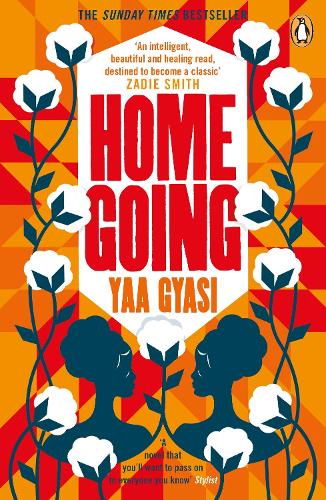
★★★★
Why have I not read this book before?? I absolutely get why this immersive and thoughtful book has garnered so many awards and attention. It begins with young Effia in 18th century Ghana who is beaten by her mother but loved by her father. As a sort of escape from or banishment from her mother, Effie marries the European slave trader James Collins. Her sister Esi, whom Effie never meets, has a completely different fate in which she is kidnapped, beaten and sent across the Atlantic (by Effia’s Husband!) to be a slave. The novel follow their descendants for the next centuries.
In the opening scene of the novel, Effia’s father sees his yam-field burn. This fire, he thinks, will ‘haunt him, his children, and his children’s children for as long as the line continued’. He is right in a way, the terrors of slave trading have arrived in Fanteland, and indeed for generations his descendants will one way or another carry the scars of that terrible enterprise. Effia’s son, Quey, will enter the slave trade like his father because that is what he is expected to do – his father is a slaver, the love of his life, the handsome Cudju is a slaver, and his maternal uncle is a slaver. Quey’s descendants will all have to reconcile themselves somehow to coming from a family that has brought so much suffering to others. And they must try to understand what it is t be Ghanean in a country controlled by the British.
Esi’s daughter Ness lives her life on the plantations in the southern states and her life is a living hell: her mother is taken from her, her husband is taken from her, her son is taken from her and in the end her ability to form new relationships. Esi’s son and grandchildren somehow manage to survive in horrendous conditions – if they are not slaves, they are always threatened by slavery or they are only allowed to live the live’s the white Americans allow them to live. Through each generation, the hurt and traume of slavery is a haunting backdrop to their lives. And is something each must overcome or succumb to.
I usually do not enjoy books with multiple points of view. Probably because I really enjoy staying with a character and getting to do a deep dive into their mind. With several POVs, there often is not enough space to do that. Gyasi changes the POV each chapter and must introduce a new time and place for each chapter, but still manages to keep her readers engaged and invested in her characters. It is quite impressive. In a way each chapter feels like a short story about the life of one person and what circumstances and choices shaped their lives. One of my favorite characters was Willie. Willie moves to New York from Alabama with her husband and toddler son, and is left by her husband when he understand that he can pass himself of as white. Willie knew he was a weak man but loved him still, and the dignity and strength with which she built a life for herself and her children was awe-inspiring.